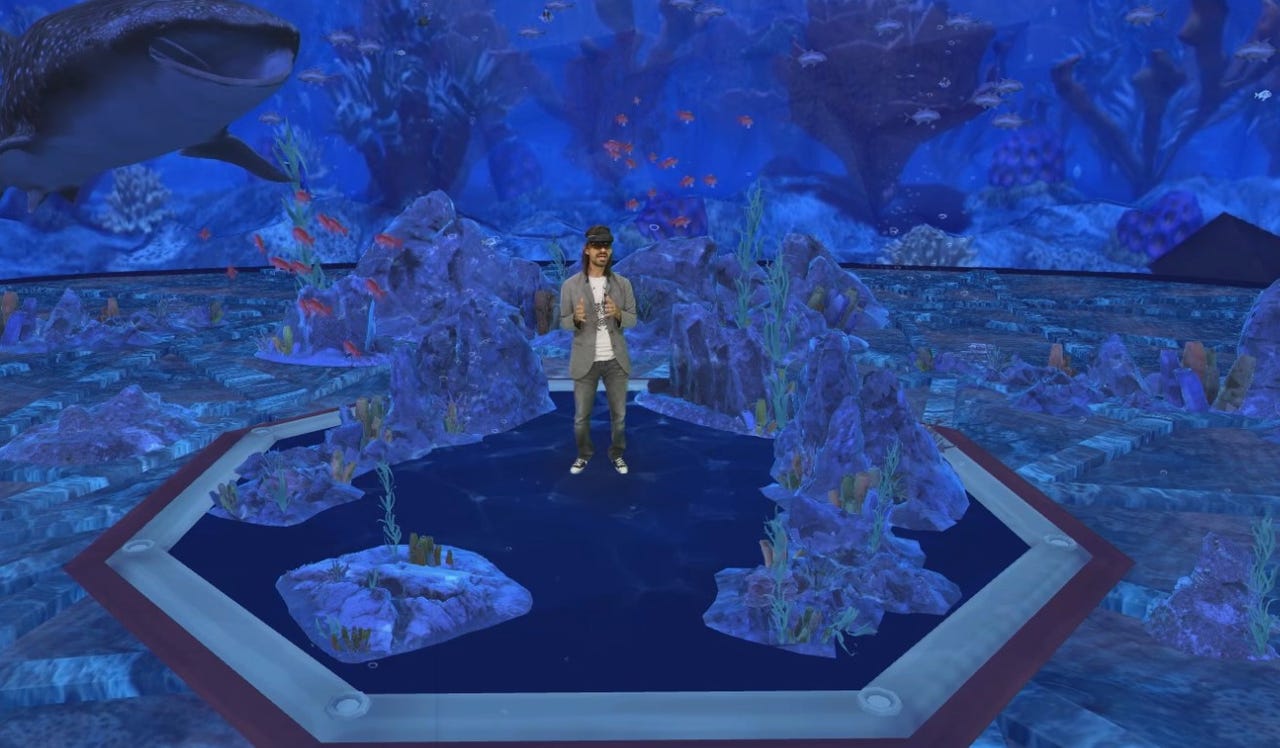































 Credit: Microsoft
Credit: Microsoft Microsoft Technical fellowandfather of the HoloLens Alex Kipman is leaving the company after 21 years.Kipman's departure is part of -- or maybe more likely, the cause of -- yet another reorg in Microsoft's Cloud and AI unit.
The move comes just ahead of the start of Microsoft's fiscal 2023 on July 1 and sets the stage for Microsoft to provide an updated explanation of what it is planning in the metaverse space. (Maybe we'll hear more about that at the company's upcoming annual Inspire partner conference in mid-July?)
Kipman's departure was reported this week by bothBusiness Insider and GeekWire. GeekWirepublished the memo from Cloud and AI Vice President Scott Guthrie that outlined plans to split the HoloLens group in two, with the hardware team joining the Windows and Devices group under Panos Panay and the software side joining Experiences and Devices so as to further the company's Mesh and Mesh for Teams work. According to Guthrie's memo, Kipman will help the transition over the next two months before leaving Microsoft.
Kipman's alleged "toxic behavior" towards women had been the subject of a recent Business Insider report. Years before that, I had heard some former HoloLens employees had decided to leave the company because Kipman wasn't a team player and was unwilling to share the limelight.
The HoloLens, which Kipman announced in 2015, has gone through a number of positioning changes over the years. Originally, Kipman (and assumedly other Microsoft leaders) saw the device as being key to Microsoft's consumer vision. But over time, Microsoft officials quickly realized the financial hopes for the device were firmly rooted in the enterprise. However, Kipman continued to fuel the idea that the HoloLens would have a big consumer future in his interviews and presentations.
Microsoft's biggest HoloLens-related contract to date -- for the Integrated Visual Augmentation System for the U.S. Army, a deal worth$22 billion over 10 years -- had run into various stumbling blocks, leading some to wonder if it would be cancelled altogether. In Guthrie's reorg memo about Kipman, he noted that IVAS has been officially approved by the Army to enter the Operational Test stage, which he called "a huge milestone for the team."
Last year, Kipman headlined Microsoft's announcement of Mesh, its mixed reality platform powered by Azure. Several months later, Microsoft outlined its Mesh for Teams initiative, via which users would be able to meet in curated virtual spaces using Mesh and Teams. This explains why the presence and collaboration services part of the HoloLens team will be moving under Corporate Vice President Jeff Teper, who is in charge of Teams.
Microsoft CEO Satya Nadella has said publicly that Microsoft believes there will be multiple metaverses in a variety of areas, from gaming to commercial. The company has been honing its enterprise metaverse strategy for the past couple of years, via which it is attempting to position a variety of products and services, including the HoloLens, Mesh, IoT services and digital twins offerings, as key components of its enterprise metaverse stack. At Build last month, Microsoft took the wraps off its Azure Digital Twins 3D Scenes Studio, which is designed to help businesses create immersive 3D visualizations.
What Microsoft didn't announce at Build (perhaps because of the negative publicity around Kipman in May?) was the expected preview of Mesh for Teams which is on tap for 2022. The preview will bring a set of pre-built immersive spaces for things like meetings and social mixers to Teams; officials said last year. In his reorg memo, Guthrie said that Microsoft and Accenture unveiled an immersive experience built with the Mesh software development kit for leaders to collaborate on global issues.
It's noteworthy that the latest reorg involving HoloLens doesn't have a consumer or gaming component. There have been rumors that Microsoft and Samsung could be collaborating on mixed reality hardware that would be more consumer-focused than the HoloLens has become. But for the time being, Microsoft's metaverse strategy is deeply rooted in the enterprise and Kipman's departure would seem to cement that strategy.
 Hot Tags :
Innovation
Metaverse
Hot Tags :
Innovation
Metaverse